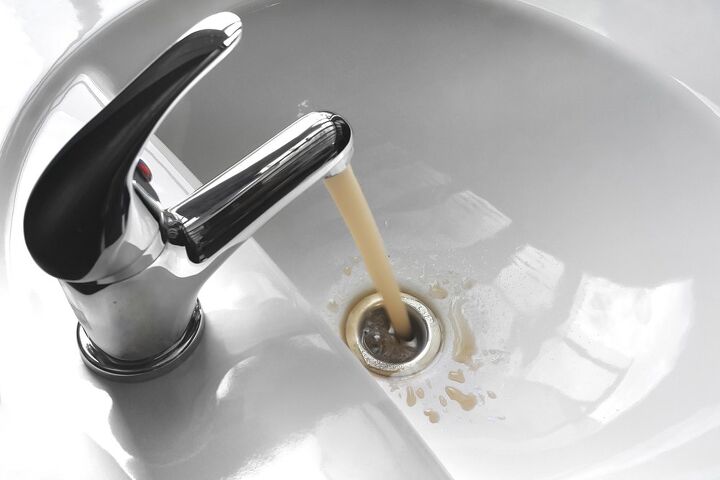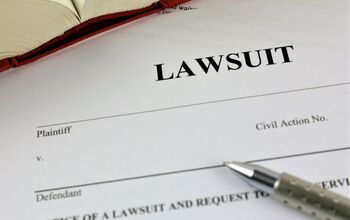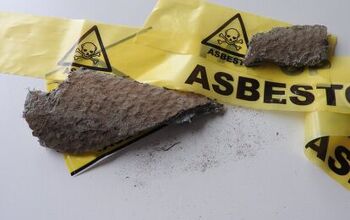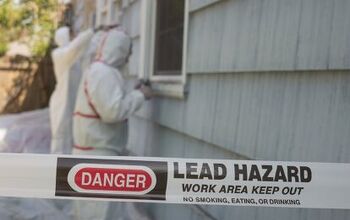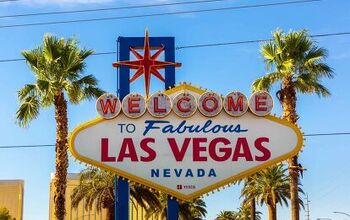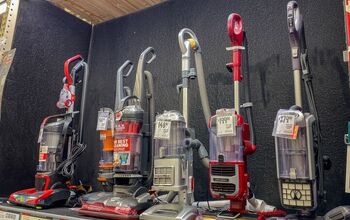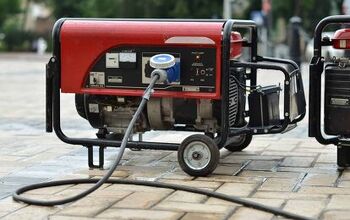Can I Sue My Landlord For Contaminated Water? (Find Out Now!)

Back when I lived in a different apartment (erm, warehouse), there was a short period of time when my water ran yellow. A call to my landlord fixed it. Afterward, I heard about the Flint water crisis and realized that contaminated water isn’t always an easy fix. Who should tenants blame when water is unfit to drink?
If you have proof that your water is contaminated and the landlord did not do anything to repair it, you probably have a right to sue your landlord. The case against your landlord is stronger if the water your landlord provides is not from your city water supply. (Sue the city if it is!)
Contaminated water isn’t a laughing matter. It can get you sick, or even kill someone. With all the hubbub about contaminated water in the news, it’s time to be realistic about what you can and cannot do.
Before We Begin: Talk To A Lawyer, PLEASE!
Any time that the word “lawsuit” comes into play, it’s time to stop relying on what blogs say. A lawsuit, especially one as serious as one dealing with healthy drinking water, is beyond our paygrade. Different states have different laws, and a talented lawyer will be able to help you navigate the harder parts of the legal world.
Sometimes, your landlord is not at fault for bad drinking water. It could be a municipal issue. Either way, we strongly suggest talking to a legal professional if you want to sue anyone. They’ll know the laws way better than we would. Besides, it’s never a good idea to go to court without legal counsel by your side.
With that said, we did the research to give you a general idea of what the laws dictate.
Is It Possible To Sue Your Landlord For Contaminated Water?
Yes and no. A general rule of thumb is that you cannot directly sue your landlord for contaminated water, especially if the reason for the contamination is beyond their control and addressed to the best of their ability. However, most jurisdictions can sue landlords for other reasons that can result from the contamination. This includes:
- Breach of Implied Habitability. In every state, there is an implied agreement between a landlord and a renter that states that the area is habitable. Habitability means that the apartment (or room) is safe to live in. When you have contaminated water or no access to water at all, that agreement is broken.
- Failure to Maintain Property. If you reported contaminated water to your landlord and the problem was not addressed within 48 hours, then you have a right to sue based on failure to neglect property.
- Breach of Contract. In one case, a landlord asked that a family move out so that the property could be demolished and rebuilt. They even offered to help them find a new home and refunded their payments. The next month, they asked them to pay $4,000 in back rent. This resulted in a breach of contract suit, among other issues.
- Bodily Harm. If the contaminated water caused serious health issues, then you probably can sue either the landlord or the city for bodily harm. This is the grounds you call when you need the lawsuit to cover medical bills.
Should You Tell Your Landlord That You Want To Sue?
In most cases, it’s not wise to bring something to court unless you absolutely have to. Litigation is both expensive and time-consuming for all parties involved. If you have any chance of settling things out of court, you absolutely should do it. Thankfully, landlords don’t want to spend time in court either.
To try to avoid a lawsuit, talk to an attorney to find out if you have a case. If you do, you should write to your landlord politely explaining what you want to have done and that you may sue if the issue isn’t fixed. For example, the following note might be a good start:
“Dear Mr. Landlord,
Recently, my daughter had a serious E.coli infection. We have asked for a water test, which revealed that our water has unusually high levels of bacteria and lead.
This is a direct threat to our health and livelihoods. We ask that the source of the contamination be found and addressed promptly. Please add a better filter to the water sources in our apartment. We do not want to have to go to court for this issue.”
How Quickly Should Your Landlord Address Water Issues?
No human being can live without water. So, if you are currently going without water or have contaminated water, the timeframe is going to be far shorter than something like a hole in the wall. Most parts of the country require landlords to address the contamination (or lack of water) immediately.
Your home is considered to be unsafe or inhabitable if your water is shut off or unusable for more than 48 hours. Obviously, this does not include moments where the utility company shuts off water to your apartment due to a lack of payment or for maintenance issues.
Can You Ask Your Landlord To Provide You With Bottled Water?
This depends on the situation. If you live in Flint, MI, then it’s clear that you probably don’t have drinkable water. Unfortunately, landlords are responsible for making sure that your apartment is safe. This includes drinking water. It wouldn’t be unreasonable to ask them for bottled water until they get a filter for the water tanks in the apartment building.
On the other hand, if you live in an area that is famous for its pristine water, then you can’t ask your landlord to supply you with bottled water. You would have to supply your own since there’s no reason not to trust the water.
How Much Can You Sue Your Landlord For?
This depends on the state that you live in, as well as the grounds on which you’re suing. Most states have a maximum amount that you can sue for in terms of negligence. If you are suing your landlord after physical damage has occurred, then the caps could be lifted.
In some areas, your maximum lawsuit could be as little as $4,000. Other states allow you to sue for as much as $15,000. The best move that you can do is ask a lawyer how much your lawsuit should cover.
Related Questions
What are the symptoms of drinking contaminated tap water?
Drinking contaminated water can cause stomach cramping, vomiting, diarrhea, and nausea. In most cases, it can also pose a heightened risk of food poisoning. People who have sensitive bodies may also develop secondary symptoms like breathing problems, listlessness, or mood swings. The exact symptoms will vary based on the specific contaminant they have.
Can you sue a city for contaminated water?
Your city is also responsible for providing drinkable water to its citizens, so in most cases, the answer is yes. Everyone remembers that Flint had a major class-action lawsuit related to the massive lead contamination found in the water. Believe it or not, these kinds of lawsuits happen fairly frequently throughout the United States.In many cases, victims of “bad water” sue both their landlords as well as the local city. You don’t have to choose between suing your landlord or city, either. It’s technically both of their faults.
What happens when a town has contaminated water?
The town becomes responsible for removing the contaminants from the water. In most situations, the town will take a close look at the source of the contaminants to see if there is a particular party responsible for the chemicals leeching into the water reserves. If they can find a guilty party, the town will typical sue on behalf of the residents for funds relating to the cleanup. You, as a resident, do not have to do anything for this to happen.
Related Guide

Ossiana Tepfenhart is an expert writer, focusing on interior design and general home tips. Writing is her life, and it's what she does best. Her interests include art and real estate investments.
More by Ossiana Tepfenhart



